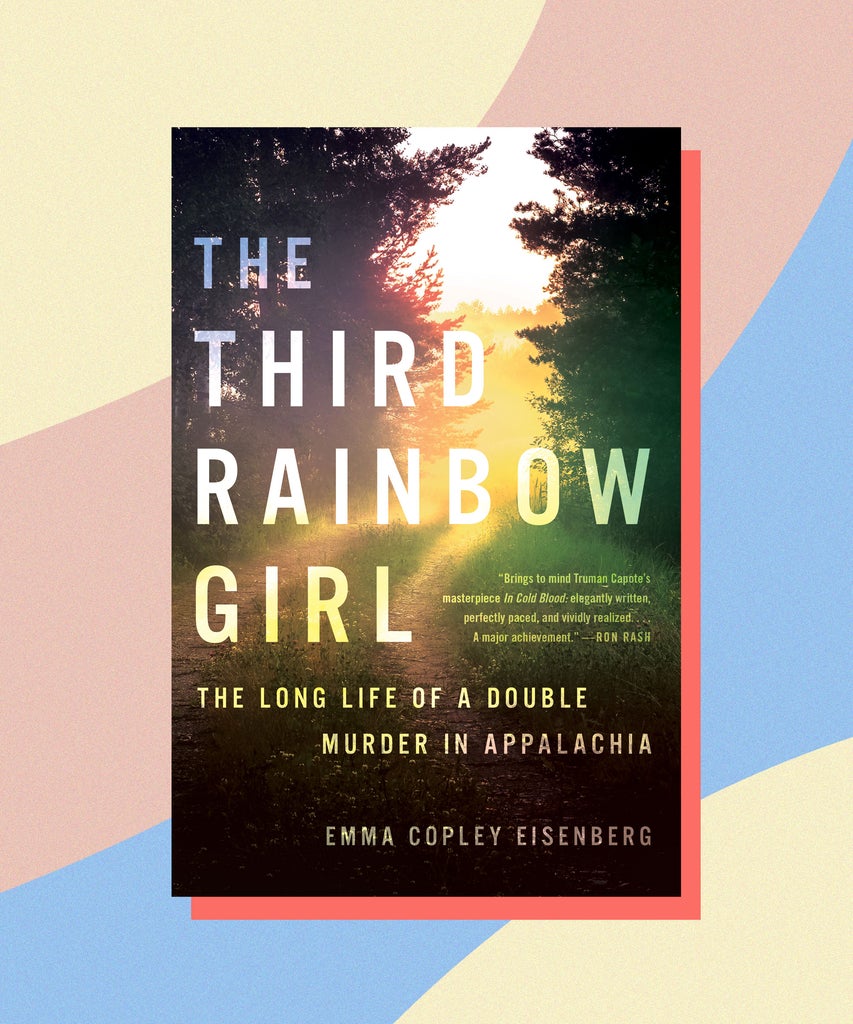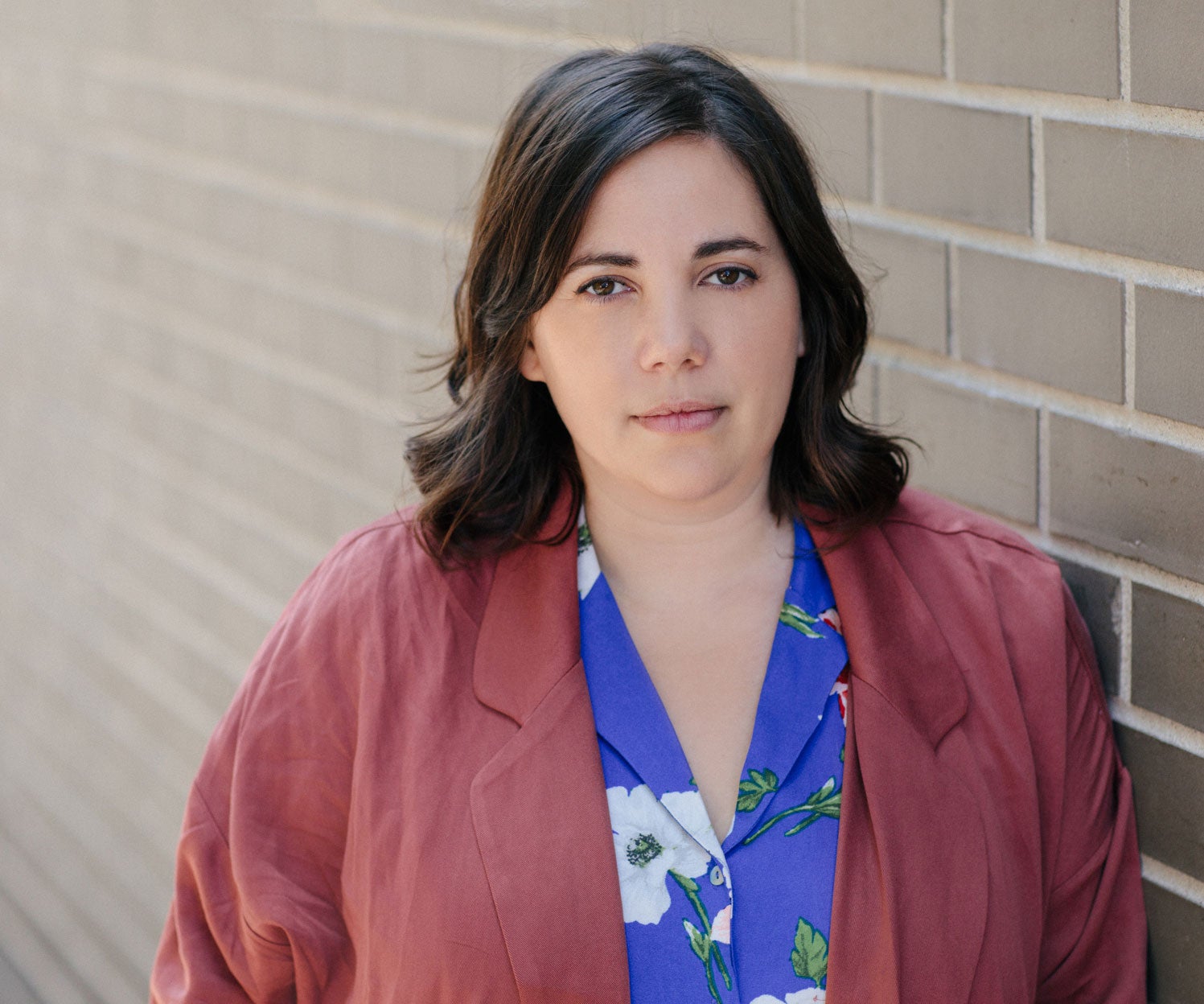How ‘The Third Rainbow Girl’ Challenges True Crime’s “Dead Girl Industrial Complex”
May 07, 2020DMT Beauty#DMTBeautySpot #beauty

In 1980, Vicki Durian and Nancy Santomero hitchhiked across the country with another young woman, Elizabeth Johndrow. Durian and Santomero were headed from Arizona to West Virginia to attend a peace festival — known as the Rainbow Gathering — held in West Virginia’s Monongahela National Forest. Before arriving, Johndrow parted ways with her companions. The next day Durian and Santomero were shot and killed; their bodies were found in a clearing in Pocahontas County.
Emma Copley Eisenberg first learned about what became known as the “Rainbow Murders” when she volunteered at a summer camp for low–income girls in Appalachia in 2010. The still-unsolved case — and the 13-year-long investigation that followed — have left deep wounds in the psyche of a community already profoundly affected by the generational trauma of poverty, beliefs about masculinity, and a lack of accessible public schools. Eisenberg knew she wanted to write about it, but since she’s primarily a fiction writer, the project began as a short story. As she researched, though, she realized she could more accurately get to the heart of the story and explore it from different angles as a book-length work of nonfiction.
As Eisenberg wrote The Third Rainbow Girl, and learned more about the murders, she found that her own story and history of trauma were becoming intertwined with the story of Pocahontas County and the people she met there. The book reflects this, providing compelling evidence for the connective tissue of crime, poverty, misogyny, and identity. It’s a nuanced examination of the ways in which violent crime and our justice system can traumatize a community for generations, and live on in unexpected ways within its population’s hearts and minds.
Below, Refinery29 spoke with Eisenberg about how she came to write The Third Rainbow Girl, the nature of true crime marketing and consumption, and the many ways in which a complex story can be told truthfully — even if certain readers struggle with that complexity.
Refinery29: What made you want to write this book?
Emma Copley Eisenberg: It started as a short story. At the time I was living in Charlottesville, Virginia. At the same time that the UVA rape on campus article came out and got so much attention, a black trans woman named Sage Smith went missing. I wrote about her, which opened the door for me to writing nonfiction. Once I allowed myself to think about The Third Rainbow Girl as nonfiction, I felt like I could really investigate it in a way that would be more ethical.
Liz Johndrow, the original third Rainbow Girl, was one of the first people I talked to. She told me that while she wasn’t physically harmed by these events, she was traumatized and carried a lot of survivor’s guilt. And for me, that idea was the entryway into the project. I also realized that if I was going to research this as a larger story I would have to talk about my own time in West Virginia. I also realized that if my story was going to be in the book, I wanted to make my own biases, blind spots, and insight visible to the reader.
You’re very open about your own experiences and what brought you to Pocahontas County in the book. What was it like to write about Appalachia as a person who’d lived there, but wasn’t from there?
I felt strongly about the theme of inherited trauma and how it relates to what’s happening now in southern West Virginia. It became more and more clear to me that the people I’d known while I was there were connected by a legacy of these crimes and by the history of an “outsider” in the area. I wanted to be sure to make West Virginia a real place, both now and in the past.
I think that there are many people who have a skewed perception of Appalachia that’s informed by books like Hillbilly Elegy. I think probably the best refutation of that book comes from Elizabeth Catte who wrote this amazing book, What You’re Getting Wrong About Appalachia. Her book is being widely read, but should be read even more. She’s a public historian and what I learned from her, and from many other people, is that JD Vance is a far right wing conservative who writes for Breitbart. So it’s very surprising to me that his book has been embraced by so many people on the left and center.
The message of Hillbilly Elegy is super harmful. It’s like “everything’s fine in Appalachia except for the fact that people are lazy and on drugs, and if they could just pull themselves up by their bootstraps, everything would be fine.” Elizabeth Catte does a great job of debunking that in her book by explaining all the structural factors that have been in place going back centuries. And it’s not just coal extraction, but also timber extraction, and fracking, and a kind of intellectual extraction.
I’m just hopeful that my book can talk alongside some of these voices from the region and be in conversation with them about all the ways that the region is moving and changing and a lot of really exciting work is being done so that people can stay and thrive.
I’m not sure I even knew the phrase “true crime” when I started writing in 2013, although inquiry into darkness has always fascinated me.
Did you initially conceive of the book under the umbrella of “true crime”?
Well, I was coming out of an MFA program in literary fiction at the time. And I was very focused on the creation of the book and not so much on selling it to a publisher. I’m not sure I even knew the phrase “true crime” when I started writing in 2013, although inquiry into darkness has always fascinated me.
I think I was probably watching movies about crimes, and documentaries and things like that, but I don’t know when the whole true crime explosion and the “dead girl industrial complex” really began, and I certainly didn’t think I was a part of it. I didn’t think of it in that genre until about a year after the book was completed.
My editor was great and always conceived of the book as complicated literary nonfiction. I think it was probably in the first sales meeting that it became a book under the label “true crime.”

And yet one of the connections that you make in the book is how the place is inextricable from this terrible crime. Can you explain that?
The story hinges on the fact that these “outsiders” came to Pocahontas County for a peace festival. And instead of there being a nice festival, there was a double murder. Then there was an intense 13-year-long investigation that wound up causing as much trauma as the original murders, if not more.
A lot of emotional labor was put into this extremely long investigation. At one point, nine local guys were either accused of the crimes, or accused one another of it, or confessed falsely. Some of them confessed because of police coercion. Some were held in jail for months or years because they couldn’t make bail. So there is definitely a crime at the center of it.
While the book has received incredible praise from places like The New York Times, it’s had a different reception on sites like Goodreads, where readers feel frustrated by the “complicated” narrative. How do you feel about that?
I was really going to avoid reviews like that, like Twitter, Amazon, Goodreads. But then, recently a couple friends of mine messaged me and were basically like, “You’re getting killed on Goodreads.”
And then I got more messages letting me know that the top review was really homophobic. So I went in and read them and got kind of riled up about it. And I was just like, this is really homophobic and strange. And I feel like there’s two things: One is the critique of: “This isn’t the kind of true crime I wanted. I wanted a nice murder story with a resolution, but instead you gave me history and context and feelings.” And the other critique is: “Why did you put yourself in it?” or “Why mention that you’re queer?”
And I feel like I’ve seen that happen to other books that I respect, like Savage Appetites by Rachel Monroe. I felt like the stuff that she included in there as a reporter was really interesting and added another layer. But think that, she got some of that criticism as well. It’s sort of a struggle. having your book marketed as true crime. I think of something like Savage Appetites as cultural criticism.
I really admire Patrick Radden Keefe’s book Say Nothing, and that’s had an interesting crossover, because sometimes it’s shelved in general nonfiction or history, and sometimes it’s shelved in true crime. Who knows. I was at Powell’s and my book was shelved in True Crime with Say Nothing and Savage Appetites and Lost Girls by Robert Kolker, and I was like, that is excellent company to be in.
When men write books that blur the line between memoir and crime reporting, as Radden Keefe does, they are often praised; women are criticized.
But I do worry that when you put a murder in a story, that it becomes a black hole that overshadows all the other content. And I do think that a lot of Goodreads reviewers just have a fundamental expectation of the genre and anything outside the formula feels disappointing. It’s also gendered. When men write books that blur the line between memoir and crime reporting, as Radden Keefe does, they are often praised; women are criticized.
Sarah Perry, who wrote an amazing book called After the Eclipse, came to Philly recently and we had a great conversation about her book and my book and Alex Marzano-Lesnevich’s book, The Fact of A Body, and how we were all queer and/or gender non-conforming. And I kind of floated this question as a joke, “Do queers just make the best murder reporters?” We couldn’t come up with an answer that felt solid. But I do think that status as an “outsider” can be really productive.
When I look back at the homophobic Goodreads review, I’m just kind of baffled. There’s a lot of queers in Appalachia. There’s a lot of queers in West Virginia. West Virginia has the highest percentage of trans young people per capita of any state in America, which is fascinating and feels relevant.
So when people are asking what that has to do with the story, I’m like, “I barely even mentioned being gay. Like I could write a much gayer book. This is probably the least gay thing I’ve done in my life.”
Like what you see? How about some more R29 goodness, right here?
The Book For Every Woman Who’s "Too Much"
An Interview With The Author Of Lost Girls
My Dark Vanessa Explodes The Lolita Myth
DMTBeautySpot
via https://www.DMTBeautySpot.com
Leah Carroll, Khareem Sudlow

0 comments